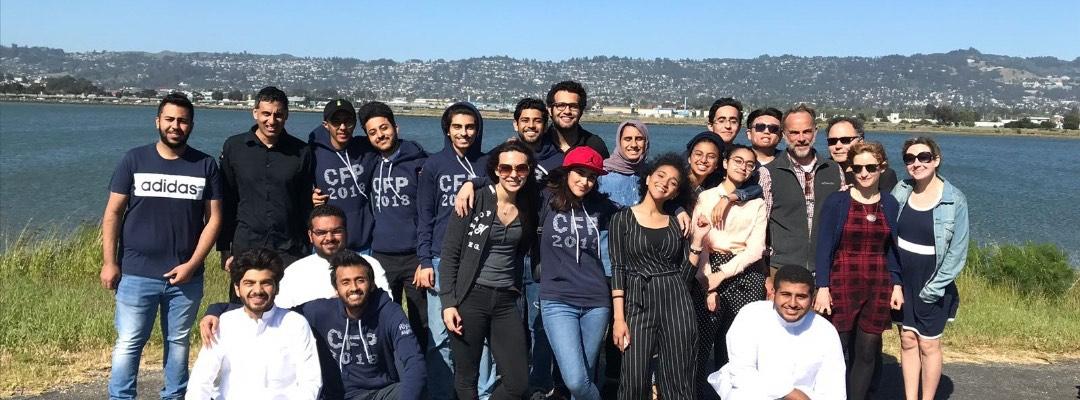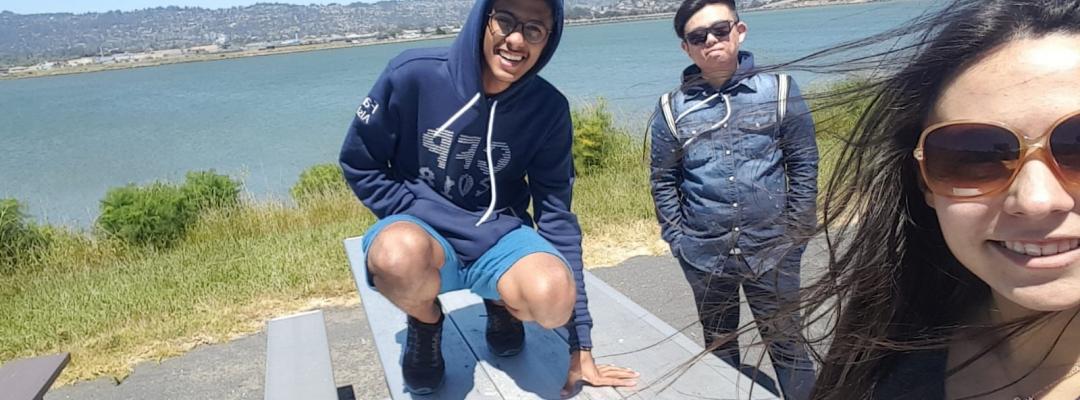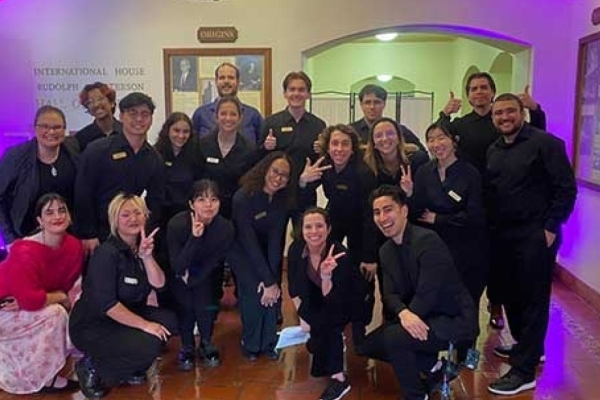The College Foundations Program brings international high school graduates to Berkeley for a gap year or semester to prepare for university study. Graduates of this program have gone on to receive offers of admission from some of the top universities in the U.S.
My name is Laura Gil and I am originally from Colombia, in South America. I attend Pennsylvania State University and am studying business economics as my major. Before college, I lived in Berkeley and attended the College Foundations Program (CFP) for a full academic year, divided into two semesters.
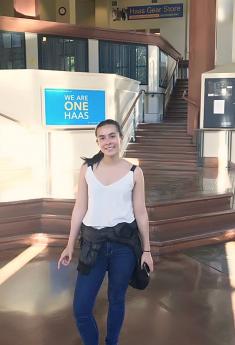
What should students expect in their CFP courses?
For the year-long or "gap year" program, the first semester is focused on college applications. Therefore, you take classes such as SAT preparation (a test you need to apply to most U.S. universities), TOEFL preparation, writing classes to improve and prepare for college application essays, and pre calculus or calculus.
The second semester is more oriented to courses and subjects you would take in college. For example, my schedule included an introductory marketing course, C++—which is a computer programming language—calculus, creative writing and a class on U.S. culture.
The CFP experience is like a "starter pack": It gives you all the tools you need, and then when you are in college, you decide how to use them.
Why Berkeley?
I chose CFP at Berkeley for two main reasons.
1. It is a very complete program with a comprehensive curriculum of courses. It combines classes that are useful for college and others that prepare you to take the standardized admissions tests. For example, the CFP writing class not only helps students write college application essays, but also helps them to practice creative writing at a fast pace. This is really useful skill for standardized tests, which are timed. It's also useful for English classes that all students need to take once they are enrolled in a U.S. university. It was helpful because in my high school we did not have specific preparation for skills to help us get admitted to pursue studies at universities in the United States.
2. Because of the professors and academic reputation of Berkeley. The CFP instructors teach at a university level and their teaching skills were undeniable. Consequently, I knew that going to this program was going to help me adapt easily to a college environment.
The CFP writing class not only helps students write college application essays, but also helps them to practice creative writing at a fast pace, a really useful skill for standardized tests and English classes that all students need to take once they are enrolled in a U.S. university.
What was the most unique experience you had in CFP?
CFP was different than other academic experiences because you get to know other cultures.
The first semester, I met people from China, Saudi Arabia and Kazakhstan. In the second semester, I met people from India, Russia and Brazil, due to the marketing class I took.
This culture “sharing” helps you adapt to the U.S. college environment, which is not something you prepare for in my home country of Colombia.
What advice would you give to a student thinking about CFP to get the most out of the program?
Take advantage of every opportunity that arises. A good attitude is paramount. It is my first advice because at times there were complaints with respect to workload and the program leaders tried their best to help. However, we realized that once we begin college, if we complain about workload nothing would change and that most good universities are very academically demanding.
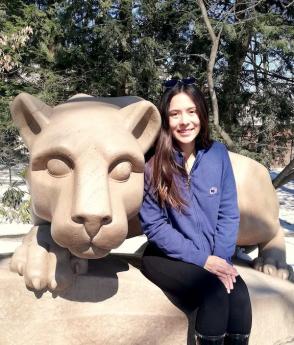
Also, I would recommend to take every opportunity you get because your résumé starts right now. If you decide to stay still, people will surpass you and leave you behind. Once you get to college and apply for jobs, the people in charge of admitting or hiring will choose the hard workers and opportunity takers.
Being part of CFP at UC Berkeley is a privilege. I would give a heads up and say that it is not an easy-“A” program. It requires hard work and a lot of passion. Being the only Latina student in the program taught me that what really matters are the decisions you make to get you where you are right now, so be wise and be humble.
Once you get to college and apply for jobs, the people in charge of admitting or hiring will choose the hard workers and opportunity takers.
How has CFP helped your education goals?
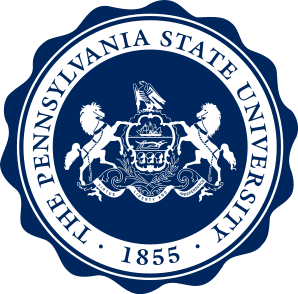
I was accepted to Pittsburgh University, Purdue University, Syracuse University and Pennsylvania State University. In the end, I made my decision to attend Penn State after taking into account three factors:
- Overall ranking (worldwide and in the U.S., both as a university and for the specific program I was looking for, not only at the undergraduate but also the graduate level)
- That the university offered my desired major, business and economics
- Cost
Participating in CFP helped me personally to grow up and, for my school and my career, it helped me to adapt easily to every situation.
Personally, because you are away from your parents, you learn how to organize your time, wash your clothes, learn to cook and spend your money wisely, among other things. These activities help you be more organized and more independent, which are skills that help you survive in the real world.
Overall, the CFP experience is like a "starter pack": It gives you all the tools you need, and then when you are in college you decide how to use them.
Learn More
The College Foundations Program brings international students to Berkeley to prepare for university study, with CFP students getting into some of the top universities in the U.S. To learn more, visit our website.
